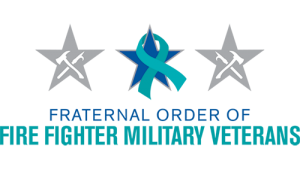Interested in becoming part of our Peer Support Network?
Training courses are available for individuals interested in getting involved with our Peer Support Network. The Fraternal Order of Fire Fighter Military Veterans (FFMV) will provide a core curriculum modeled after the International Critical Incident Stress Foundation (ICISF) program.
The training courses will include:
- Signs and symptoms of PTSD
- Suicide signs and symptoms, prevention, intervention, and postvention
- How to properly debrief with a peer
- Veteran integration training
- Available resources for the target population
This will help raise awareness to the issues of stress and development of PTSD.
Courses Offered
Group Crisis Intervention (GRIN)
Course Highlights
- Relevant research findings
- Relevant recommendations for practice
- Incident assessment
- Strategic intervention planning
- “Resistance, resilience, recovery” continuum
- Large group crisis interventions
- Small group crisis interventions
- Adverse outcome associated with crisis intervention
- Reducing risks
Continuing Education Information
Three-Day Course; 27 Contact Hours
Completion of this course will meet the initial training requirements per the MA State Peer Support Network By-Laws for attendees to become functioning members of the State’s CISM network.
Suicide Prevention, Intervention, and Postvention
Course Highlights
- Common myths about suicide
- Risk factors for suicidal behavior
- Frequent motivations for suicide
- Problem solving methods
- Effective intervention strategies
- Elements of effective postvention
- Elements of survivor grief
- Community referral sources
- “Mini-lecture” on suicide
- Feelings and reactions of suicide survivors
Continuing Education Information
Two-Day Course; 14 Contact Hours
From Battlefield to Street: One Uniform to Another
Course Highlights
- Types of symptoms present in the returning military veteran
- Principles of combat stress interventions
- Challenges being faced not common to previous
- “Lessons learned” about combat stress/psychological injuries
- “Deadly Combat Sins”
- “Battlemind” skills that must be transitioned upon retuning home
- “Triggers” that can remind the military veteran of combat experience
- Steps of the RESTORE protocol and where it may be used
- Signs and/or symptoms of Traumatic Brain Injury
- Resources for referral and/or additional help
Continuing Education Information
Two-Day Course; 14 Contact Hours
From Trauma to Addiction
Course Highlights
- Addiction Issues of Concern
- Generalized Adaptation Syndrome
- PTSD, Alcoholism, and Addictions
- Extremes of Human Stress
- Assessing Incidents
- Addiction and Suicide
- Enabling, Jackpots, & Co-Dependency
- Belief Systems and Recovery
- Roads to Living Clean and Sober
- Living with Someone in Recovery
Continuing Education Information
Two-Day Course; 14 Contact Hours

